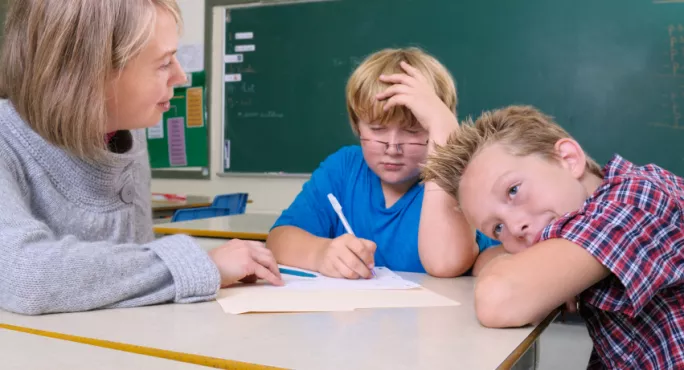There is no doubt that the past two years of the ”Gove curriculum” have created an education system which is determined to drive out of every individual any ounce of creativity. The great Pablo Picasso famously stated: “Every child is an artist. The problem is how to remain an artist once he grows up.” Sadly, schools are now given very little leeway to support any budding artists we may have.
Schools are now, more than at any other time in recent memory, about pupil attainment in a very limited number of subjects. There is now no time for the pupil to be enthused about the butterfly coming in the window; instead we write about it and then dissect the grammatical elements of the prose written.
In just two short years, the national curriculum has driven enthusiasm out of our children and also their initiative, and sadly, much of the enjoyment they had for learning. And just think what the teachers who are teaching it feel.
We now have a curriculum so narrow that both pupils and teachers are bored with it. We all know this was the curriculum that former education secretary Michael Gove built, with its emphasis on content and knowledge over creativity and enjoyment. Isn’t it time for us, as educationalists who care, to stand up and state what it has done to both us and our pupils.
Firstly, the curriculum ignores the fact that children learn in a variety of ways. Inevitably, we have stifled creativity at the expense of repetition.
‘No time for free thought’
Teachers now have no time to engage children in free thought, and, sadly, there is now no time to allow children to think for themselves. Creative subjects do this, of course, but look what happened to them. The national desire for data has seen these subjects squeezed to the point of submission and we now have a national curriculum which has placed the creative subjects into a straitjacket to be loosened at your school’s peril.
It was Albert Einstein who once said it as it is: “Imagination is more important than knowledge. Knowledge is limited to all we know and understand, while imagination embraces the entire world and all there ever will be to know and understand.”
A 2015 study by Warwick University suggested that Britain was falling behind other leading powers in “reimagining learning”, and said: “It is vital that current and future generations have technological, entrepreneurial and creative confidence and skills to drive economic growth.” And yet since 2011 there has been an 11 per cent drop in secondary art teachers, and an 8 per cent drop in secondary drama teachers.
There is no doubt the current focus on testing is generating a population that believes there is only one right answer for every question. There is now no room for debate, or the unexpected, and the result is that it is hampering students’ creativity.
As we get older, as I well know, creativity naturally declines. However, how sad is it to think that we now actually start to see this decline at age 6?
We now create clones, not individual children with unique ideas and the ability to think outside the box. They are sadly also less adventurous in their learning and less humorous, too - we haven’t got time for that!
And aren’t these the skills that are so crucial in adulthood?
There may be a solution: maybe our beloved Ofsted will state that creativity is important, and that schools should have an element of enjoyment attached to them. After all, shouldn’t school be fun?
Colin Harris is a former primary head and is now supporting teachers and headteachers
Want to keep up with the latest education news and opinion? Follow TES on Twitter and like TES on Facebook




